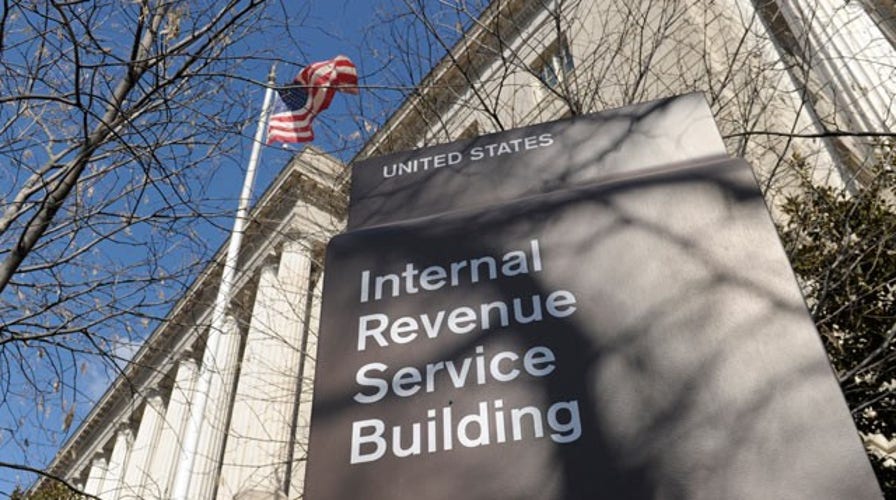Chaffetz: 'Rogue agents' not to blame for IRS scandal
Lawmaker rejects calls to end investigation
Republican lawmakers have set their sights on a President Obama appointee as they try to determine whether he links the White House to the IRS scandal over the targeting of conservative groups.
Congressional testimony on Thursday from a retired IRS tax law specialist claimed that the Office of Chief Counsel, led by William Wilkins, was involved in the screening of Tea Party groups seeking tax-exempt status.
Wilkins -- a former tax lobbyist-turned-attorney -- happens to be a Democratic donor and the only IRS official at the time of the scandal to have been appointed by Obama.
Republicans are running with the testimony. Looking at the counsel's office is where House Oversight Committee Chairman Rep. Darrell Issa, R-Calif., and Rep. Jason Chaffetz, R-Utah, have indicated officials will take their investigation next.
"We've got to untangle the lies and misdirection that came out of the White House," Chaffetz told Fox News on Friday. ""I really take issue in how the White House has tried to blame this on two rogue agents ... and it just never was the case."
So who is Wilkins and just how close is he to the president?
Prior to being nominated in April 2009 to become the chief counsel for the IRS and assistant general counsel for the Treasury Department, Wilkins was a registered lobbyist and partner at WilmerHale, a tax law practice with offices around the world.
At WilmerHale, he advised clients on tax compliance, exempt organization issues, corporate transactions as well as investment structures and federal tax legislation and regulation.
As a lobbyist, he gave money to lawmakers responsible for tax law. While records show he gave money to both Republicans and Democrats, most of his donations went to Democrats including: Sen. Max Baucus, D-Mont., and the late New York Sen. Daniel Patrick Moynihan.
During his tenure at WilmerHale, he helped defend Obama's former church, Trinity United Church of Christ in Chicago, and its then-pastor Rev. Jeremiah Wright after the IRS began looking at then-presidential candidate Obama's speaking engagement at the church.
Tax exempt non-profit organizations are legally prevented from participating in political campaign activities. Wilkins and other attorneys at WilmerHale took on the case pro bono and were able to successfully argue that the church offered their invitation to Obama before he announced his presidential candidacy.
Ironically, the church was accused for violating its 501 tax-exempt status. Several Tea Party and conservative groups claimed they were denied a similar designation by the IRS as part of the current scandal.
"Bill has been a leading member of our Tax Practice and the Tax Bar in general, and I am confident that his judgment and broad tax experience will be an asset to the IRS," Bill Caporizzo, chairman of WilmerHale's Tax Practice Group, is quoted as saying on the company website.
Before he joined the law practice in 1988, Wilkins was a familiar face around Capitol Hill. The Yale University and Harvard Law School graduate was the staff director and chief counsel on the Senate Committee on Finance.
Wilkins held several offices in the Section of Taxation of the American Bar Association, including a one-year term as chair prior to his appointment as chief counsel. He has also served on the governing boards of the American College of Tax Counsel and the American Tax Policy Institute.
There has been no word from the White House on implications Wilkins knew about the IRS giving conservative tax groups extra scrutiny. Officials have previously said the White House was not involved, and the inspector general's report has not shown any indication of White House involvement either.
On Thursday, though, former IRS official Carter Hull testified that he was told to send documents on Tea Party applications to the Office of Chief Counsel, as well as to an adviser for embattled IRS official Lois Lerner. At an August 2011 meeting, Hull said, someone from the chief counsel's office said additional information was needed from Tea Party applicants that Hull was dealing with, and that a second letter should be sent out requesting more information. Hull said during his testimony that the multi-level layer of review was "unusual."
Calls to the IRS for comment were not immediately returned.





